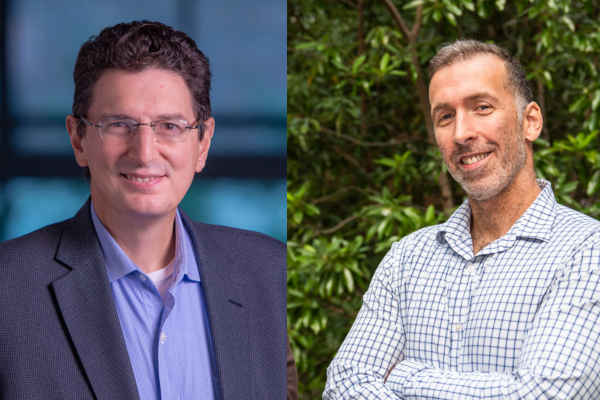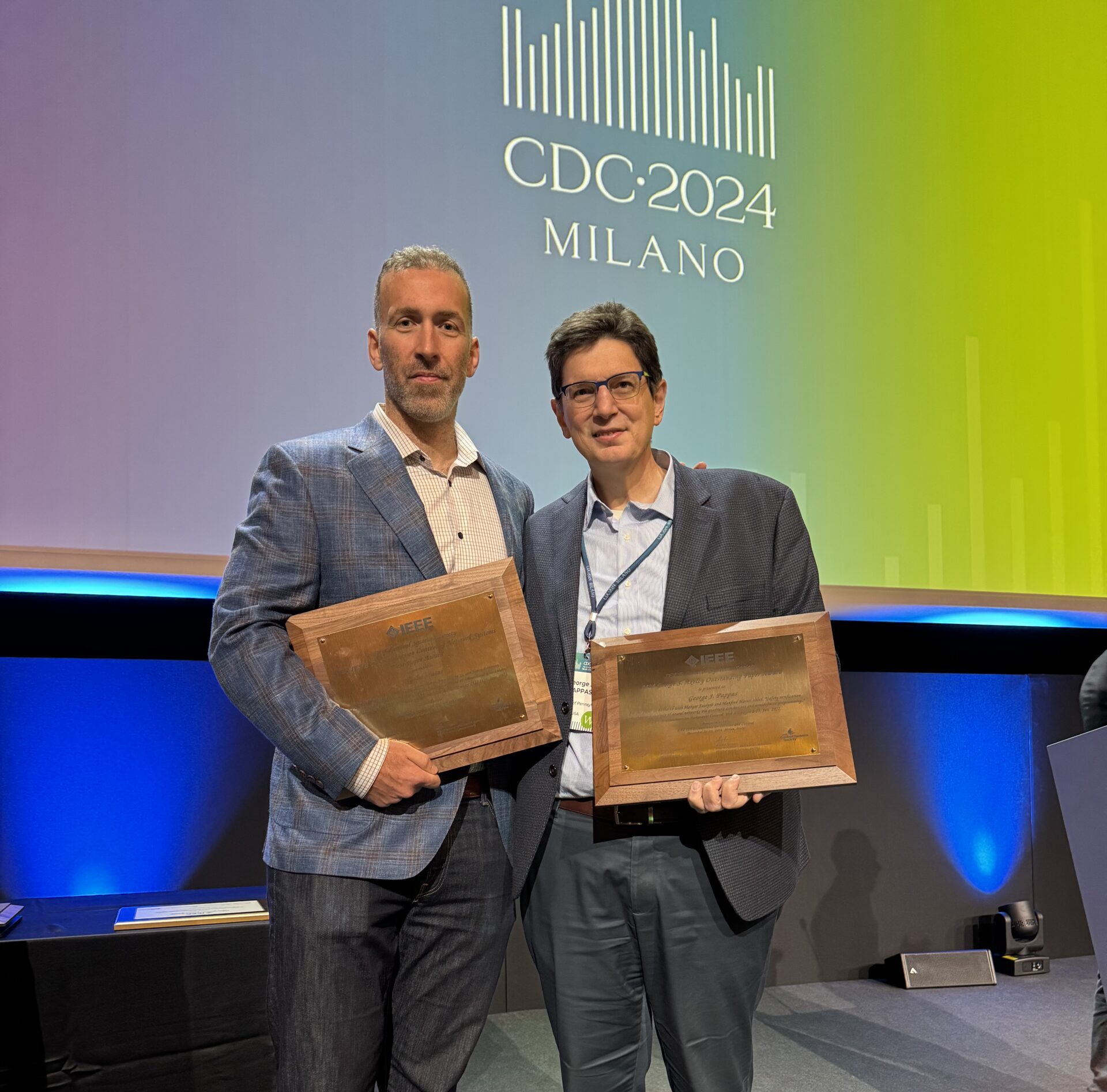
George Pappas, UPS Foundation Professor of Transportation in Electrical and Systems Engineering (ESE) and Associate Dean for Research for Penn Engineering, and Nikolai Matni, Assistant Professor in ESE, have been recognized with awards from the Control Systems Society (CSS) of the IEEE honoring their publications in IEEE Transactions on Automatic Control and IEEE Transactions on Control of Network Systems, respectively. Pappas was named the recipient of the 2024 IEEE CSS George S. Axelby Outstanding Paper Award and Matni was awarded the 2024 IEEE Transactions on Control of Network Systems Best Paper Award. These are some of the most prestigious awards in the field of control systems that recognize papers which demonstrate originality, advance the theoretical foundations of control and have significant real-world impact.
Pappas’ and Matni’s work each exemplify all of these qualities. Pappas’ influential work combines deep theoretical insight with practical applications that address key safety concerns in modern AI systems. Matni’s work advances research in network systems, with significant implications for autonomous systems, cyber-physical networks and distributed control.
Winning the George S. Axelby Outstanding Paper Award, Pappas’ paper, “Safety verification and robustness analysis of neural networks via quadratic constraints and semidefinite programming,” was published in January 2022 alongside co-authors Mahyar Fazlyab and Manfred Morari.
“Our paper shows that control systems will be critical in ensuring the safety of neural networks and related AI approaches,” says Pappas. “I am grateful to the awards committee for recognizing the importance of this direction.”
Receiving the Transactions on Control of Networked Systems Best Paper award, Matni’s “Distributed and Localized Model Predictive Control—Part II: Theoretical Guarantees” was co-authored with Carmen Amo Alonso, Jing Shuang Li and James Anderson and published in September 2023.
“Our paper makes significant advances in the area of large-scale, safety-critical control by allowing sophisticated control techniques that were once limited to single systems, such as a robot or airplane, to be applied to societal-scale systems like the power grid or intelligent transportation systems,” says Matni. “My co-authors and I are grateful for this recognition, and are excited to see how the community builds on our results.”
The Control Systems Society (CSS) of the IEEE is a leading global organization dedicated to advancing both the theory and practice of systems and control. Established in 1954, the IEEE CSS has played a pioneering role in shaping the field of control systems for more than 65 years. Its mission is to foster scientific, technological and educational progress across the diverse areas of automatic control, decision-making and their applications. The society supports research and innovation in a wide range of sectors, including aerospace, automotive systems, communication networks, cyber-physical systems, manufacturing, micro/nano technologies, power grids, process control, robotics, smart communities, and systems and synthetic biology.

Nikolai Matni (left) and George Pappas (right) receive their awards at the IEEE Conference on Decision and Control (CDC) in December 2024, during the conference’s annual awards ceremony.
Read more about these IEEE awards on their website.
